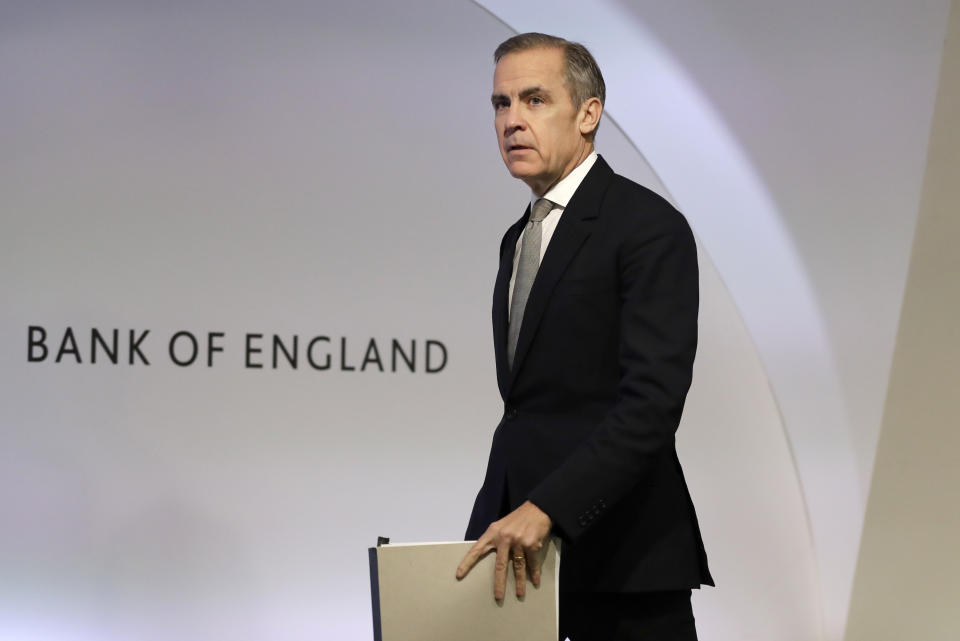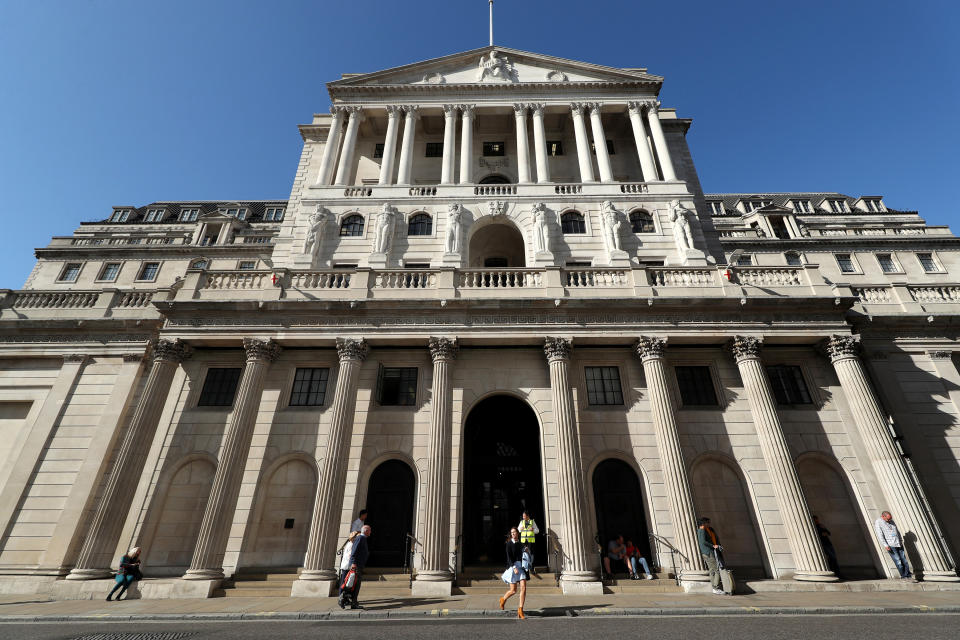'Jury still out' as Bank of England set for knife-edge rates decision

Traders and analysts are split on whether the Bank of England will cut interest rates on Thursday, setting the stage for one of the most eagerly awaited monetary policy decisions in years.
A run of weak economic data — including stubbornly low inflation, dismal retail sales, and a shrinking economy — could persuade the bank’s policymakers to lower the benchmark interest rate from 0.75% to 0.5%. It would be the first rate cut since 2016.
But other closely watched indicators point to a clear, if modest, rebound for the economy in the wake of December’s emphatic election result. It may convince the Bank of England no action is needed to stimulate economic growth.
The divided data sets up the most closely watched interest rates decision in years, with markets pricing a 50-50 chance of either a rate cut or no change.
“It's finely balanced,” analysts at Bank of America said in a note Wednesday.
The case for holding rates
Those who expect no change in rates point to recent data showing positive momentum in the economy.
Front and centre is purchasing managers’ index (PMI) data for January, which came in well ahead of expectations. Business optimism has also ticked up and there has been an improvement in the housing market.
The PMI data was “strong enough” for the bank to keep rates on hold, according to Samuel Tombs, chief UK economist at Pantheon Macroeconomics.
Other analysts think the Bank’s Monetary Policy Committee (MPC) will wait to see whether the government announces a spending package designed to boost the economy in the budget.
“With the budget due in mid-March, the Bank of England might decide to wait and see if there really is a bounce post-Brexit and how much extra money the government is going to spend,” said Russ Mould, investment analyst at stockbroker AJ Bell.
James Smith, an economist at ING, said the “jury is still out” on the government's spending promises but said he wasn’t expecting a cut.
“While we are somewhat sceptical about the recent rise in sentiment data, and aren't convinced we'll see a big increase in investment post-election, we think the Bank of England will opt against cutting interest rates this month,” Smith wrote in a note.
Rate cut argument ‘remains strong’
Analysts expecting a rate cut point to the UK’s persistently low growth and Brexit uncertainty.
“The case for an immediate rate cut remains strong,” said Sanjay Raja and Oliver Harvey, analysts at Deutsche Bank.
“For one, there are clear signs of excess capacity in the economy. UK growth has been below potential for nearly two years.”
The UK economy unexpectedly shrank by 0.3% in November, following meagre growth in the preceding two months.

Four of the bank’s nine-member MPC have already indicated they could vote to cut interest rates. Two of them — Jonathan Haskell and Michael Saunders — have twice voted to cut rates at previous meetings.
READ MORE: UK economy shrank significantly ahead of general election
Outgoing Bank of England governor Mark Carney also hinted in a speech earlier this month that he would favour a rate cut if evidence of persistent economic weakness continues.
“The context surrounding this decision is unusual to say the least, with many in markets believing that Carney already has communicated a decision to cut next week with little sensitivity to the stronger data,” said Allan Monks, an economist at JP Morgan.
“As such it is hard to argue that a cut can be ruled out.”
Brexit complicates things
Ultimately, the MPC’s decision may come down to its view on Brexit.
After the UK leaves the European Union on Friday, the country will enter an 11-month transition period during which it must negotiate trade deals with the likes of the EU and the US.
“A shorter transition period and push towards a hard Brexit later this year will likely keep uncertainty entrenched over the next 11 months, weighing further on households and businesses,” the Deutsche Bank analysts said.
The MPC has noted in the past that “entrenched uncertainty” would likely require it to take steps to reinforce the UK's economic recovery.
READ MORE: UK house prices see biggest leap in more than a year
Even if the Bank of England is convinced that the economy is experiencing an upturn, it could still vote to cut interest rates as a precautionary measure, hoping to cushion the economy like the US Federal Reserve had done. Bank of America analysts said they expect to see a rate cut to “reinforce the recovery”.
“The bank doesn’t want to get behind the curve of market expectations,” said Neil Wilson, chief markets analyst at Markets.com. “It would be following the Fed’s playbook in cutting early in order to prevent a downturn.”
The Bank of England will announce its January interest rates decision at 12pm on 31 January.

 Yahoo Finance
Yahoo Finance 
